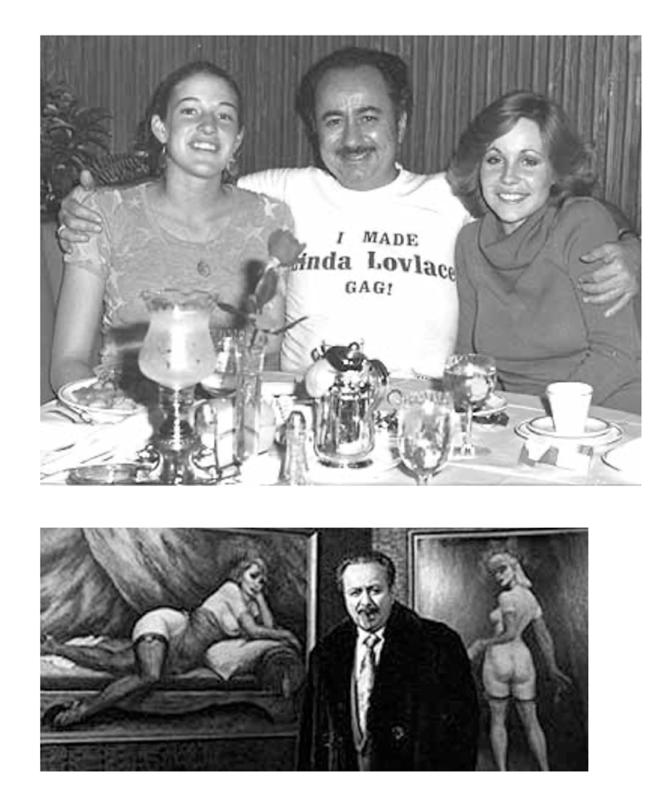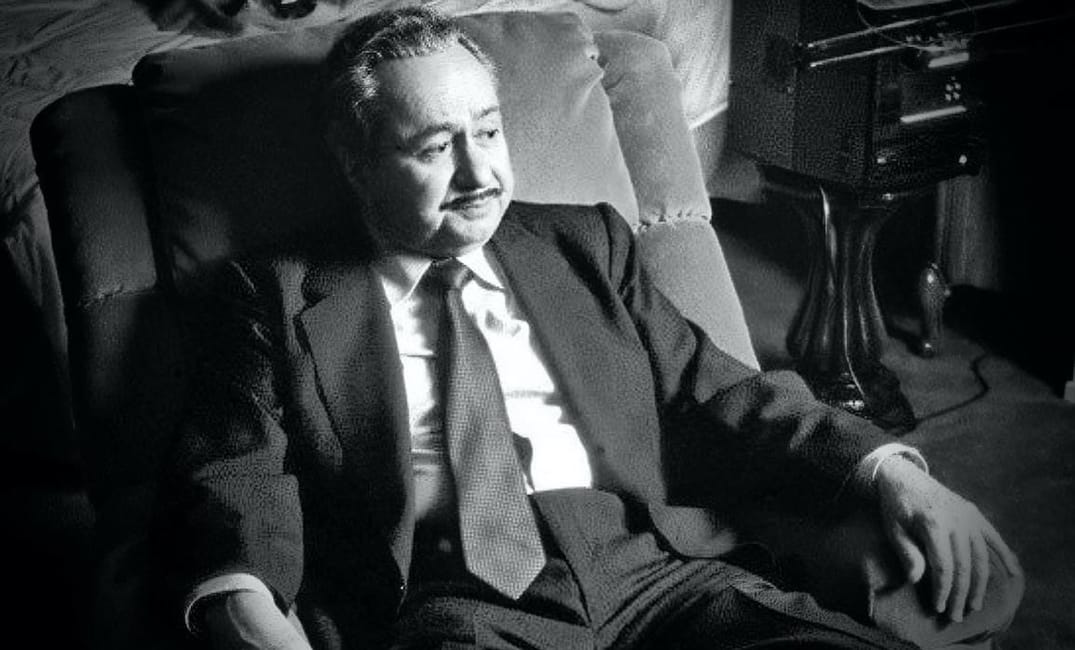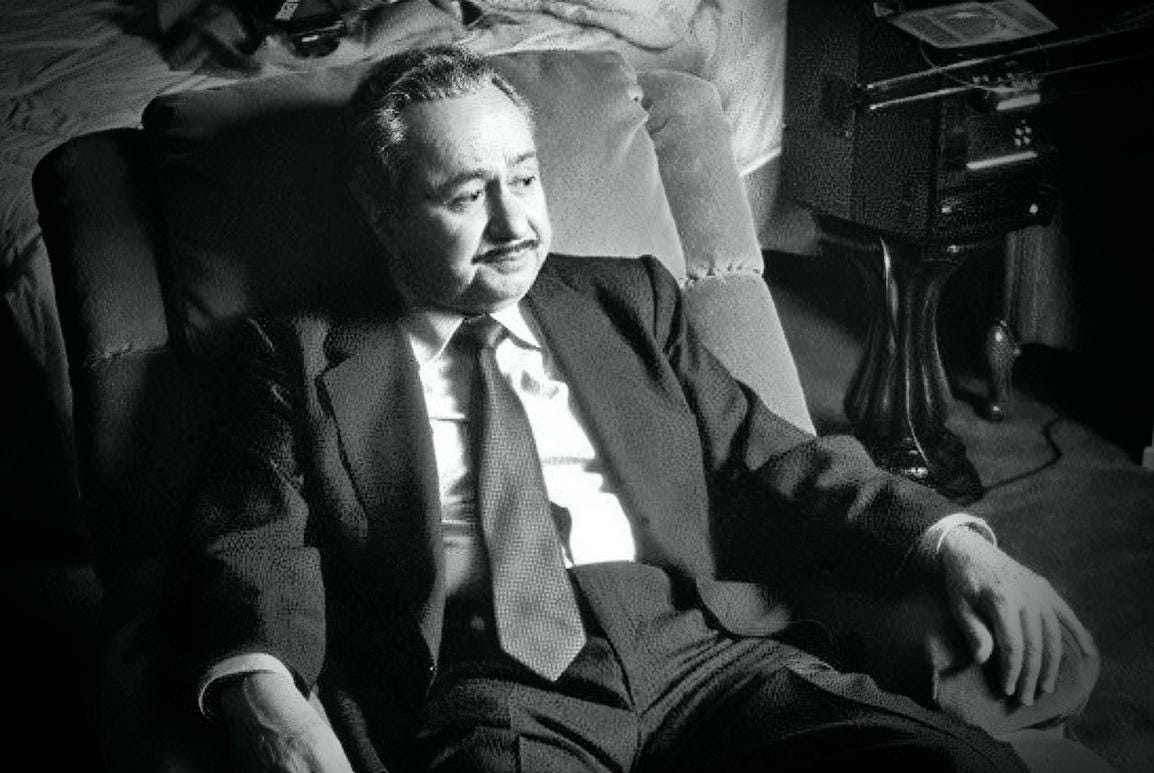
Few people can say their spiritual growth was entrusted to an actual “godfather” — not just the religious kind, also the “Don” kind. I had just that in Giuseppe Conforte, better known as Joe Conforte — even better known as “the King of Prostitution.”
This man was the black sheep of our extended Sicilian family. As the founder of Nevada’s most notorious house of ill repute, the Mustang Ranch, he was a key figure in legalizing sex work in much of the state.
My Catholic baptism was consecrated at Saints Peter and Paul Church in San Francisco’s North Beach neighborhood as my godparents, Joe and his sister Lina (short for Pasqualina, which is Italian for “Little Easter”), solemnly recited their vows to protect me from evil toward everlasting grace with God. Standing nearby with proud and watchful eyes, my parents, Saverio and Annie Versaggi, completed the ritual prayers that would someday secure my soul’s passport to heaven.
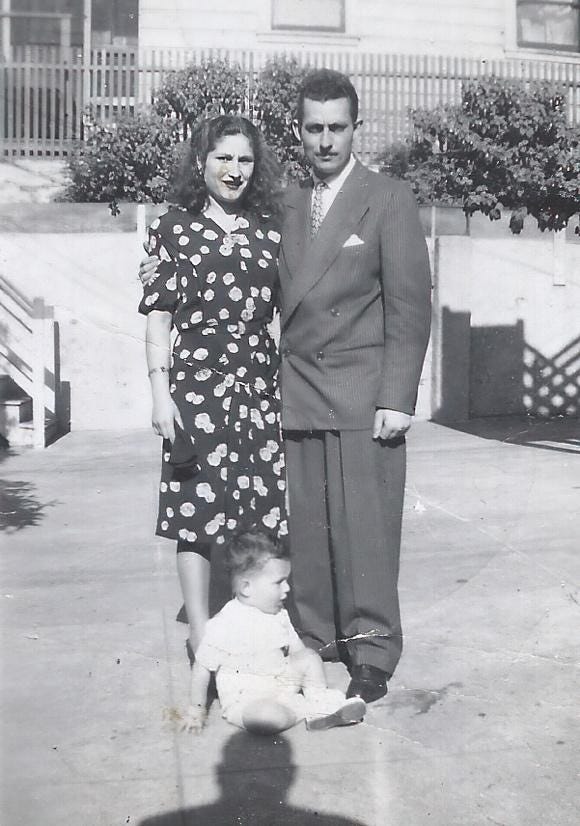
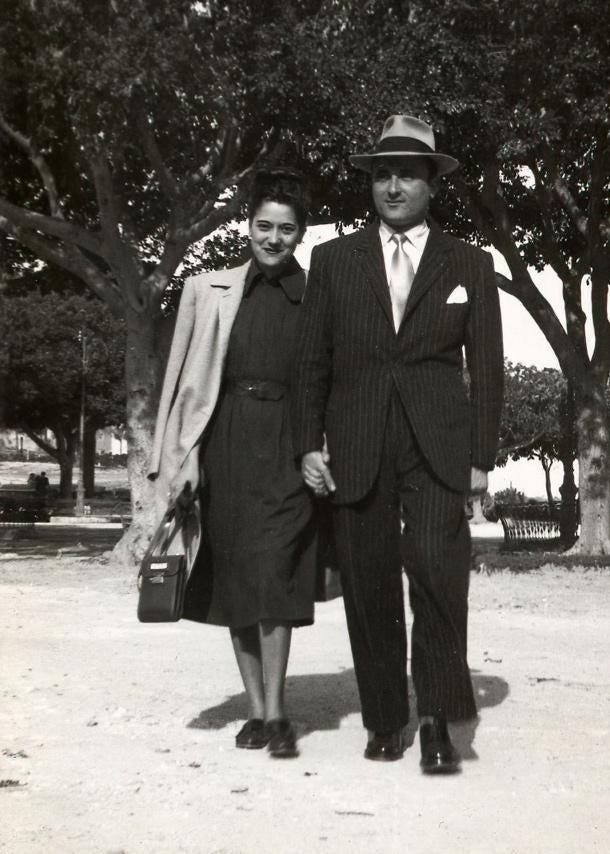
My baptism took place in 1947 when I was 16 months old, an only child coddled by doting Italian parents living in North Beach, the heart of the city’s Italianita (“Little Italy”). I had been conceived in Sicily and born just in time to be a bona fide U.S. citizen.
The Conforte family and my mother’s family — the Romeos — were from the same Sicilian village of Augusta, where their children played together before immigrating to the U.S. Their lives would intersect again after World War II ended, when the Confortes wended their way from Boston to California and eventually Nevada and my family joined the North Beach Italian community.
Sign up for The Bold Italic newsletter to get the best of the Bay Area in your inbox every week.
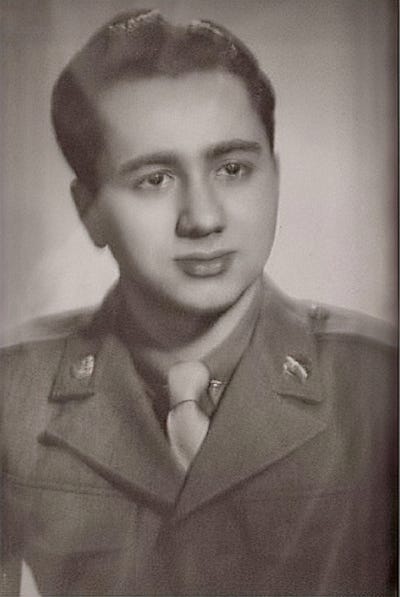
A few months before my baptism, my dad had returned from World War II, a decorated Bersagliere commando for the Royal Italian Army, after defeating the Nazis at Monte Casino with the Allied forces. Conforte, the immigrant son of an uneducated Boston bootlegger, was at the time a military policeman at Fort Ord, Monterey, spending his weekends (often AWOL) blowing his paycheck in Reno.
Although Conforte was narcissistic and often getting into trouble, he found time to join his sister Lina to fulfill their respective duties of being my baptismal cumpari (godfather) and cumare (godmother).
Three years later, Conforte would be driving a cab, taking sailors from Oakland to North Beach’s steamy International Settlement to hook up with prostitutes at $3 a trick. Formerly known as “the Latin Quarter” and renowned for its brothels near the Embarcadero and Telegraph Hill, North Beach was the hot spot for sex and drugs (rock ’n’ roll would come later).
Oddly, I never met Conforte after my baptism, though my parents would sheepishly tell me stories about him.
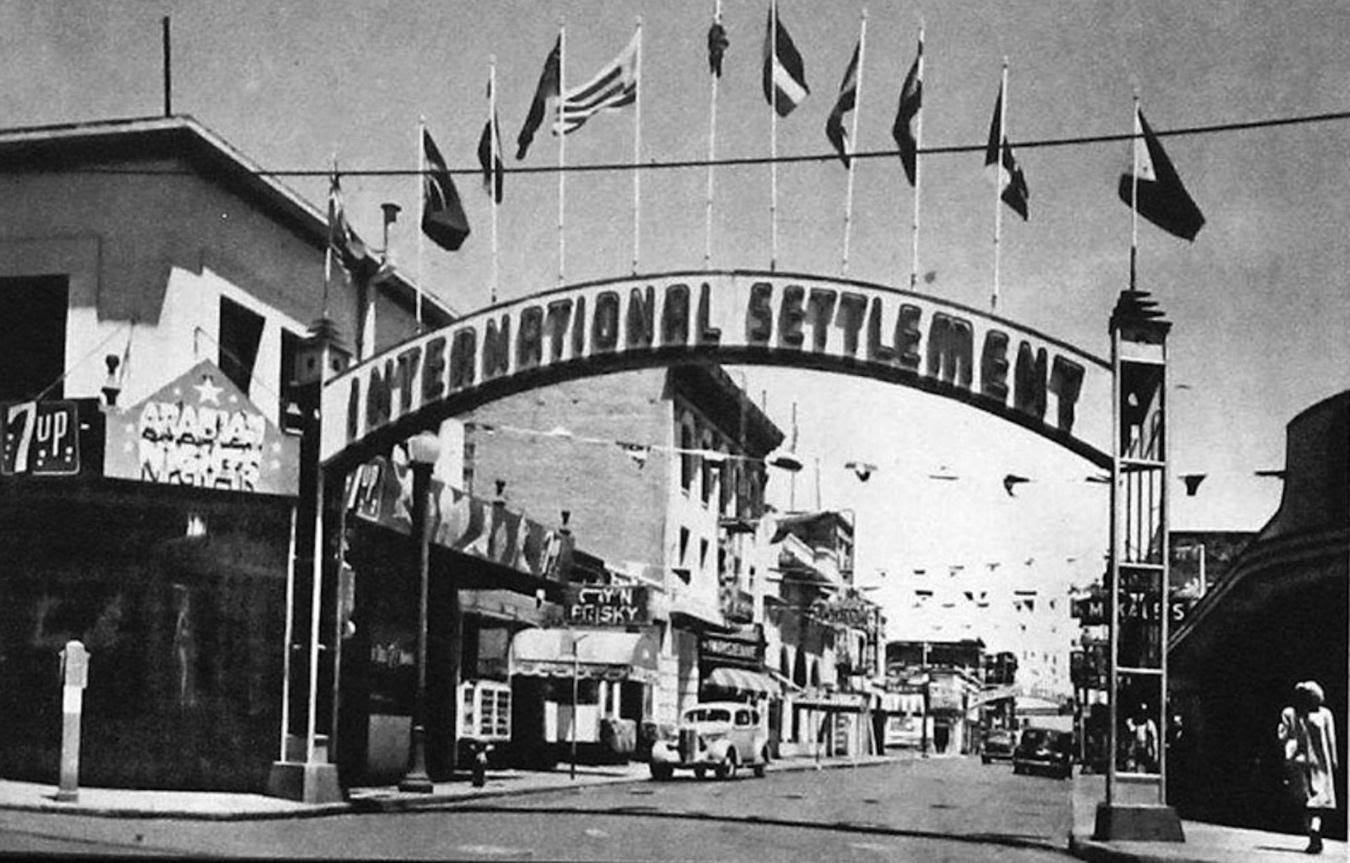
Joe’s story: Breaks, brains, and balls
Born into poverty in Augusta, Italy, to Agostino and Francesca Conforte in 1925, Conforte lost his mother at age five to breast cancer. Afterward, his father left the family with relatives to head off to Boston.
He was raised by his three sisters and his aunt until age 12, at which point he and his two older sisters, Fina and Lina, joined their father in Boston to work in the family’s produce store. But the young Conforte was restless and eager to fulfill his Hollywood visions of success.
“I’m not going to waste my life as a fruit and vegetable boy. My mind was always going somewhere, and I was fascinated with the West,” Conforte writes in his autobiography, Breaks, Brains & Balls, co-authored with David W. Toll, which recounts his early history with prostitution and uncovers the intimate underbelly of his famous brothel.
At 16 years old, on his third attempt to run away from home, Conforte made it to New York City with $10 in his pocket. After saving some cash working in a produce stand, circuitous events led him to Cleveland, St. Louis, and Tulsa. Eventually, in May 1942, he rode a Greyhound Bus to Los Angeles, where he ended up buying a produce market from a Japanese owner who had been forced into an internment camp.
Attracted by a steady paycheck, but gambling and grifting on the side, between November 1945 and January 1950, Conforte served three voluntary hitches in the U.S. Army with a court-martial and hard labor in between for being AWOL. During this time, he married Susan Stallings — one of three wives and several mistresses that would give him three daughters and a son over his lifetime. He then discovered the bankrolling potential of Reno, only to gamble away his savings each time he visited the small town’s casinos.
In 1950, he worked as a cabdriver in Oakland. Soon, he realized how to “put two and two together” and connect local prostitutes with sailors, first in Vallejo and later in North Beach’s International Settlement in San Francisco. Not only did he get cab fare, but he also got a 30% commission from the hookup.
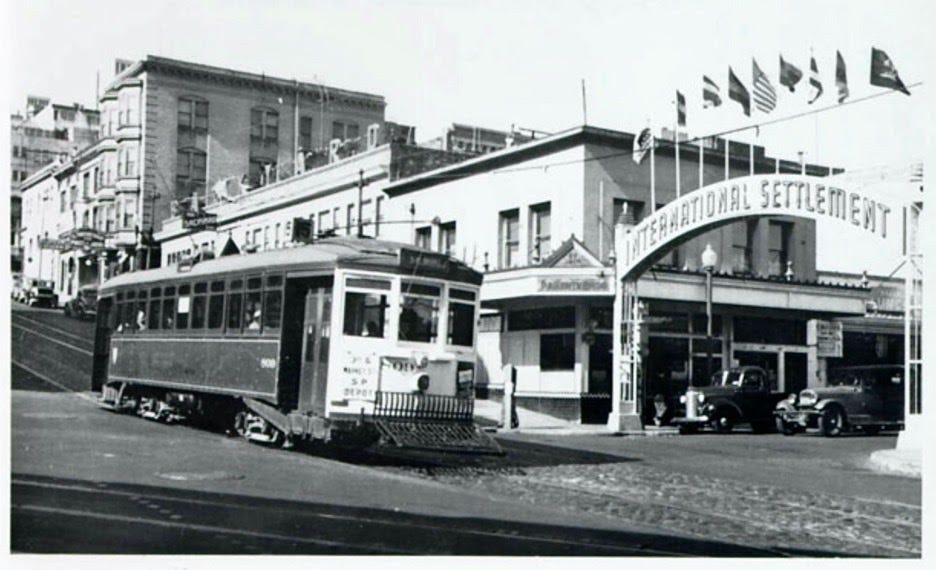
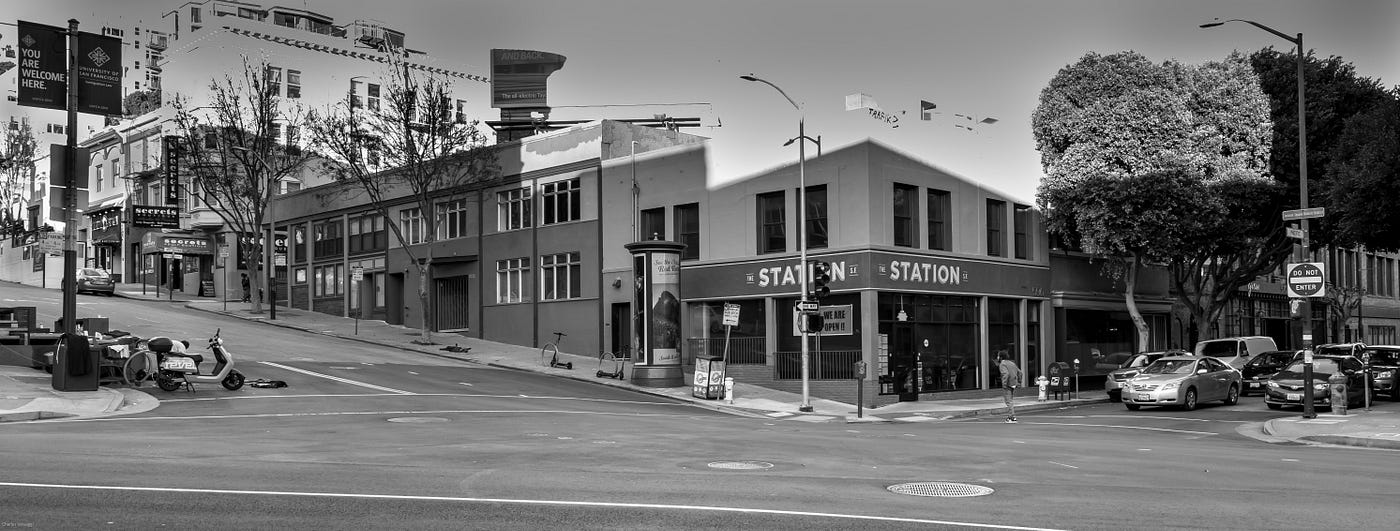
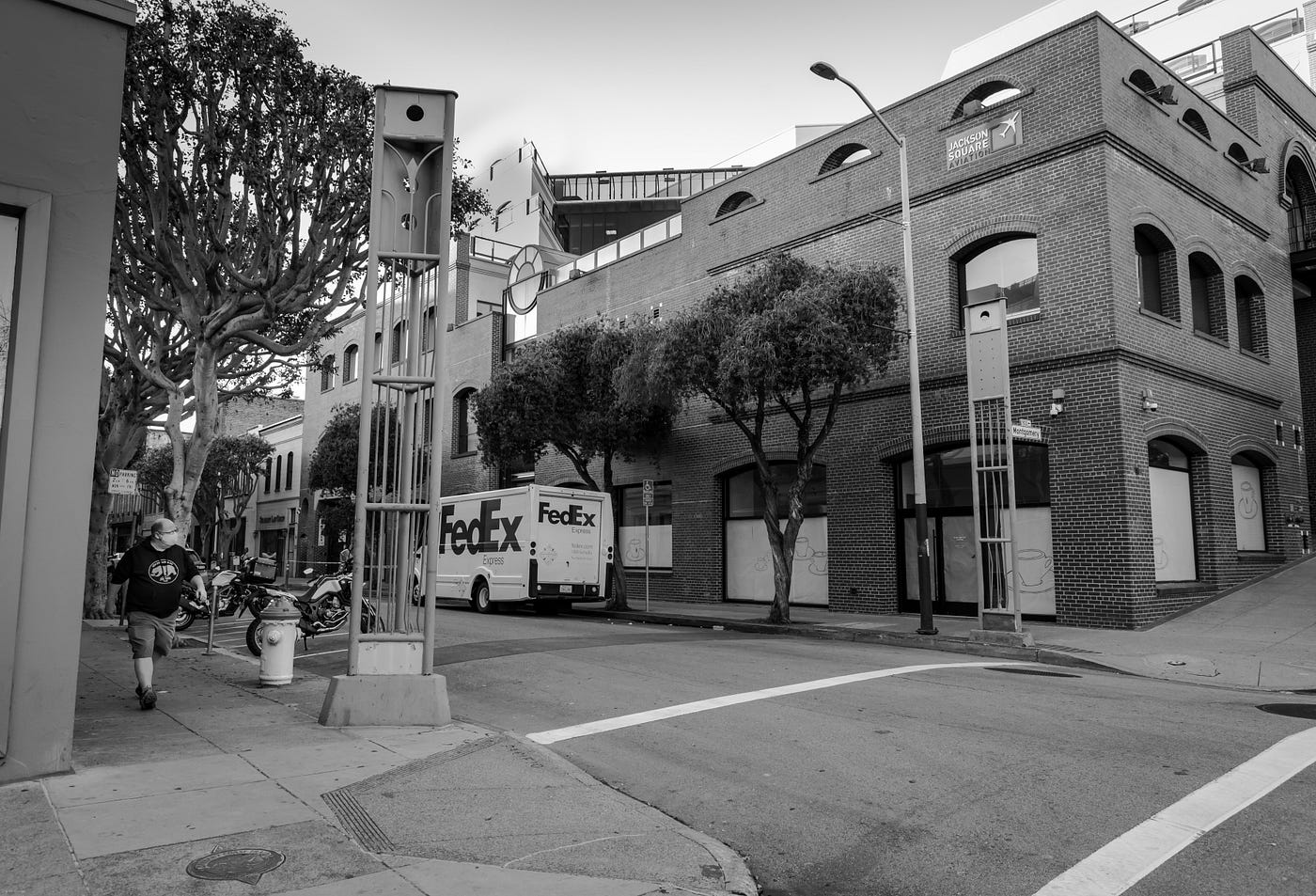
“I realized that if this is what these guys want, how can it be bad? How can it be wrong? It must give them what they need. That’s one reason why I wanted to open up these places,” Conforte explains in his book. “In those days, we used to park the cabs on the Barbary Coast, on Pacific Ave., where all the tourists came to see these strip-tease joints. Our slogan was ‘Do you want to see them, or do you want to feel them?’”
In 1952, Conforte started his first brothel with a couple of women at Oakland’s Wagner Hotel on 16th and Clay streets. It sat across from the local police station, so he made a deal with Lt. Riley, head of the vice squad. “If you want to operate low and discrete, all we want is a couple of hundred dollars a week. A thousand dollars a month, and I’ll see that you’re left alone,” Riley said, according to Conforte’s book.
During the early 1950s, Conforte spent half of his time with his mistress, Judy Lewis, in a budget rental on Joost Avenue in San Francisco and the other half with his second wife, Katherine, and their two daughters in a nice house in Oakland. Coincidentally, six years later, my family and I would live two blocks up the street on Joost Avenue.
The road to Mustang Ranch
In 1954, Conforte met a couple of local Nevada politicos who were running for office, and he learned of a small ranch in Storey County 20 miles east of Reno that was for sale. A few months later, practically broke and despondent over Judy’s mental decline to alcoholism, he decided to leave her and his wife and kids unannounced to buy the ranch with the last $500 he had to his name.
On June 3, 1955, he opened the Triangle River Ranch Whorehouse in a ramshackle trailer with two girls. Renamed The Mustang Ranch, it became the state’s first licensed brothel in 1971. This place was what eventually led to the legalization of brothel prostitution in 10 of the state’s 17 counties. Although now closed temporarily due to the Covid-19 pandemic, the notorious Mustang Ranch is purportedly America’s largest and most profitable brothel.
“It took breaks, brains, and balls every step of the way, from a street-smart runaway kid in New York City to owning the Mustang Ranch in the Nevada desert, putting millions into a Swiss bank account, getting away to Brazil and then going on the run from Interpol, always one little mistake away from losing everything,” he vaingloriously writes in his book. “And I made it! I beat them all!”
Conforte’s clients included Nevada police and police commissioners, local and state legislators, U.S. senators, priests and rabbis, and a lot more. Despite having so many friends in high places, he spent much of his life fighting the government and legitimizing his brothel and his life.
At his peak, Conforte was a fearless folk hero, a national celebrity, and a political power broker whose story was told many times in books, newspapers, and magazines, including a 1972 cover story in Rolling Stone. Coverage of his corrupt politics won Warren Lerude, Norman Cardoza, and Foster Church of the Nevada State Journal and Reno Evening Gazette the 1977 Pulitzer Prize for editorial writing.
Conforte and the Mustang Ranch were even the subject of a big-budget Hollywood movie, Love Ranch (2010), starring Joe Pesci as Conforte and Helen Mirren as Sally Burgess, his steadfast third wife and business partner. The movie alludes to the mysterious circumstances surrounding the shooting and death at the brothel of famous Argentinian-Italian heavyweight boxer Oscar “Ringo” Bonavena, who lost to Muhammad Ali and Joe Frazier. (Critics panned the movie: “Despite its saucy setup and the always marvelous Helen Mirren, Love Ranch is disappointingly flaccid,” one critic wrote.)
Don Conforte
“J.C.” fancied himself as being the benevolent “capo dei capi” godfather of Storey County, crusading to legalize the world’s oldest profession as a “community service.” Prone to philanthropic excess, he would annually donate thousands of turkeys to the poor, and once offered brothel passes to any Desert Storm veteran that cost him $400,000.
About 25 years after his cab-driving days, the pudgy, gravelly voiced Sicilian — sporting a pencil mustache, chewing $18 smuggled Cuban cigars, and wearing elevator wingtips and a $4,000 hair transplant — would be seen driving a customized, bulletproof Bugazzi that a reporter described as a Lincoln Continental Mark IV that looked like “Moby Dick and Aquaman had gotten crazy during spring break on the Island of Dr. Moreau.”
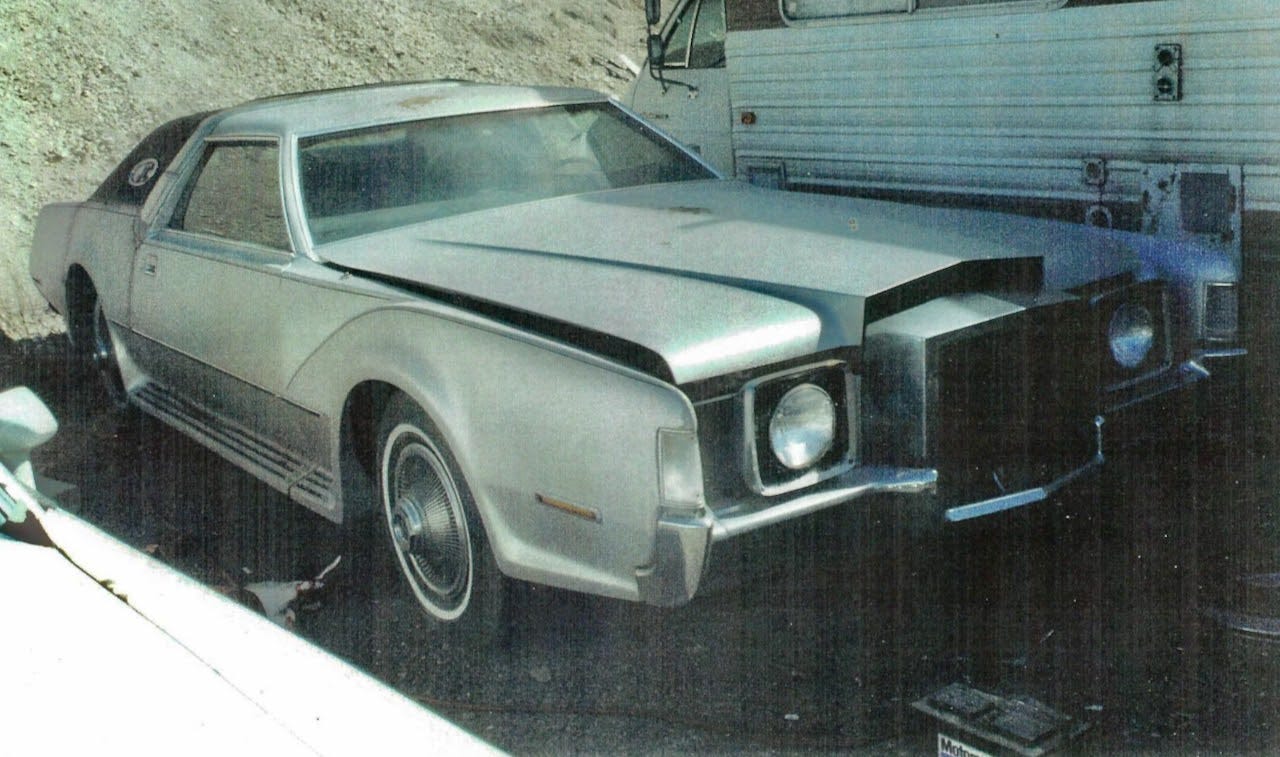
“He loved the sense of being a Don,” Toll, his book’s co-author, recently told me. “He ran the Mustang Ranch like his own personal scene. It was like Don Corleone, but Don Conforte. Because he had the prototype images in his head very deep. He took a lot of that from the Godfather movies. He watched Godfather II I don’t know how many times.”
People either loved or hated Conforte. Either way, he was proud of his vocation. “There were some who despised him as a guy who was taking advantage of them, and there were women who idolized him as a person who put money in their pockets and for looking after them. He was the ‘master of the household’ — the Don who would hold court and dish out rewards and punishments,” Toll said.
“One of my favorite recollections came about when we were talking about something that made the paper,” Toll recounted with a sly smile. “He was described as a ‘whorehouse tycoon.’ Conforte was incensed. ‘Whorehouse! Whorehouse! I own a gravel pit, you know!’”
Il comparaggio
Of all the social kinships nourished by Catholic dogma and tradition, the godparent relationship — il comparaggio — is strongly rooted in Mediterranean Latin cultures, especially Sicily. Traditionally relegated to relatives or close friends of the family, godparents are responsible for protecting the child against witches and malocchio — the evil eye. (My maternal grandmother would warn me to be ever-so-vigilant about evil women who could cast a spell over you by putting their menstrual blood in your coffee.)
Witchcraft and evil are ancient themes in Sicilian culture. The symbol on the Sicilian flag is the Trinacria (referring to the three main promontories of the island), which features the mythological Medusa, the snake-coiffed goddess known for her abilities to fight the forces of evil and turn men to stone.
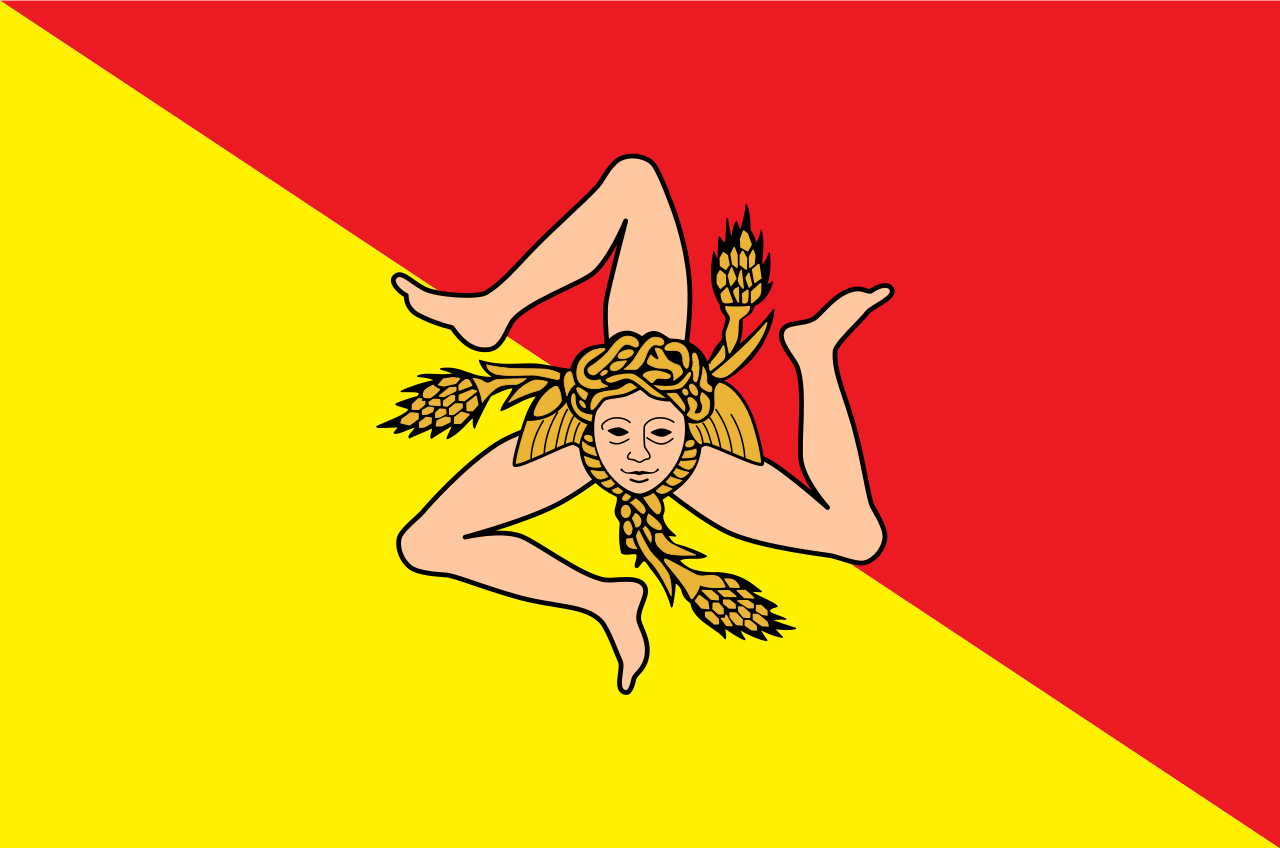
A godparent should serve as an authentic example of Christian charity — someone who can demonstrate the holiness of life. What were my parents thinking?
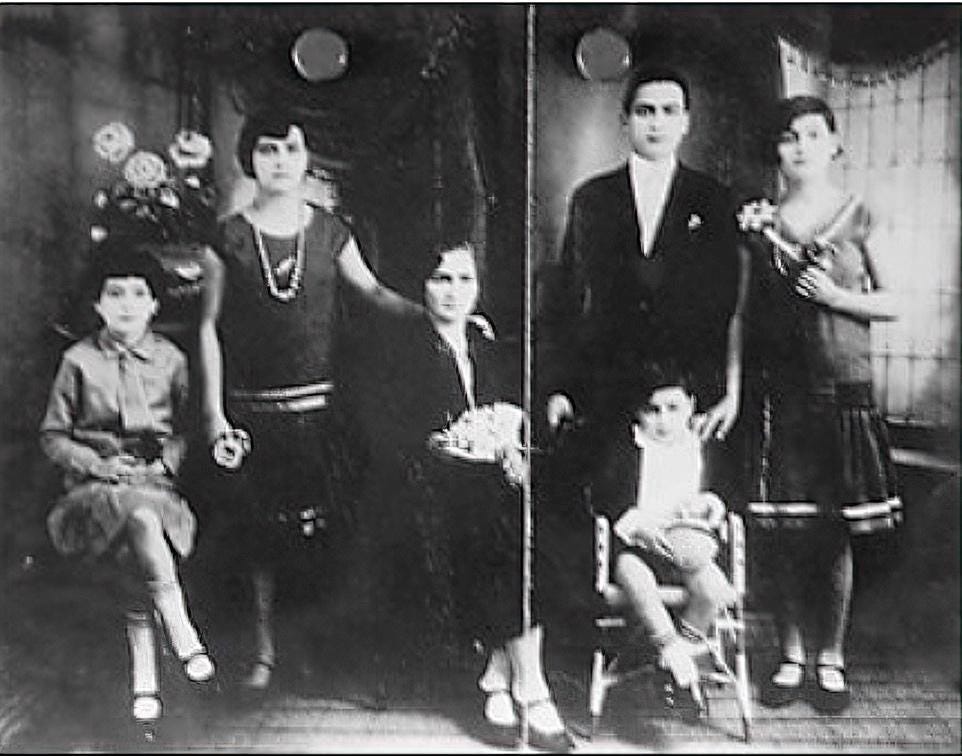
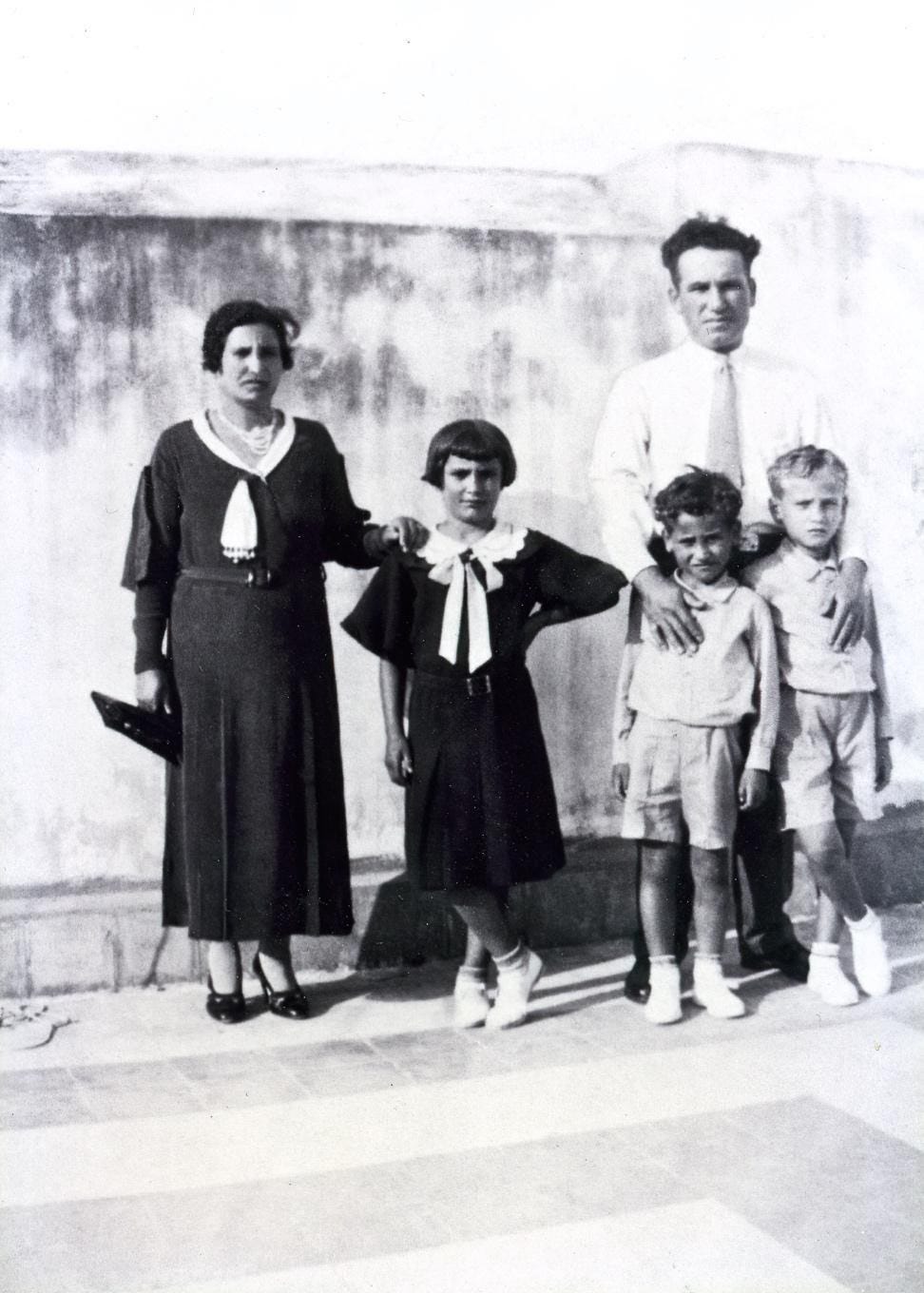
Mussolini’s influence
An Italian fascista in his youth, Conforte liked being compared to Mussolini. In his book, Conforte recalled il Duce’s glory days during his childhood, “Hey, Mussolini wasn’t a bad guy,” he once said. “His mistake was joining up with Hitler.”
“Mussolini put up slogans on the walls that you would see when you took the train or went bicycling. There is one I will never forget: ‘It is better to live one day like a lion than 100 years like a sheep.’”
For 25 years, every March 19, Conforte would return to his poverty-stricken childhood in Augusta to celebrate the Feast of Saint Joseph and auction. Saint Joseph is regarded by Sicilians as the island’s patron saint for preventing a famine during the Middle Ages with a bountiful crop of fava beans.
Wearing a mink fur coat and an 8-carat diamond ring, he was regaled by everyone, especially the recipients of his generous contributions. Everywhere Conforte went, he stuffed money into outstretched hands. Among other causes, the auction helped to raise money for the Chiesa Madre (Mother Church) and the Chiesa di San Domenico (St. Domenic’s Church). The latter’s ornate wooden doors, pews, and confessionals were handcarved by my paternal grandfather, Salvatore Versaggi.
Saved by an illegitimate daughter
Conforte’s legacy ended in 1986. He escaped federal authorities for tax evasion, went on the lam from Interpol, hid from Chile and other countries, and ended up in Brazil, paying $10,000 a month to a local police chief to stay undercover.
“He was a very smart guy — he had a daughter (Annabella) that was born in Brazil,” Toll said. “He imported one of the Ranch girls who had become pregnant, presumably by him, and took her to Brazil to give birth there. Brazilian law forbids the extradition of anyone with a Brazilian dependent. When the case came before the country’s supreme court, they unanimously decided he couldn’t be extradited because the offenses in the U.S. were not crimes in Brazil. He didn’t always think ahead, but he sure did that time.”
The one word Conforte despised
Conforte died in 2019 at the age of 94 in Rio de Janeiro, long retired from trying to legitimize his illegitimate life. His sister, my godmother, Lina Conforte died in 2010 at the age of 90 in Los Angeles, three years after the death of her naturalized Sicilian husband, Frank Micale. Her obituary didn’t mention her brother Joe.
Many sobriquets were used to describe Conforte: whorehouse tycoon, the godfather of Storey County, whoremaster, Mr. Madame, even Joe Joy House. During the Ranch’s early days, my mother and her brothers, Joe and Jack Romeo, once visited Conforte. Upon seeing my uncle Jack, Conforte abruptly slammed the door in his face because he once called Conforte the one word he despised: pimp.
I’m proud of my Sicilian family and colorful heritage (who knows, Joe and Lina Conforte may greet me at the Pearly Gates). Conforte’s “morality” or lack thereof is not my family’s. Regardless of your views on sex work, like death and taxes, I don’t think the world’s oldest profession will ever go away.
“There are good people who do good things, there are bad people who do bad things. But to get a good person to do a bad thing takes religion.” — Bill Maher
